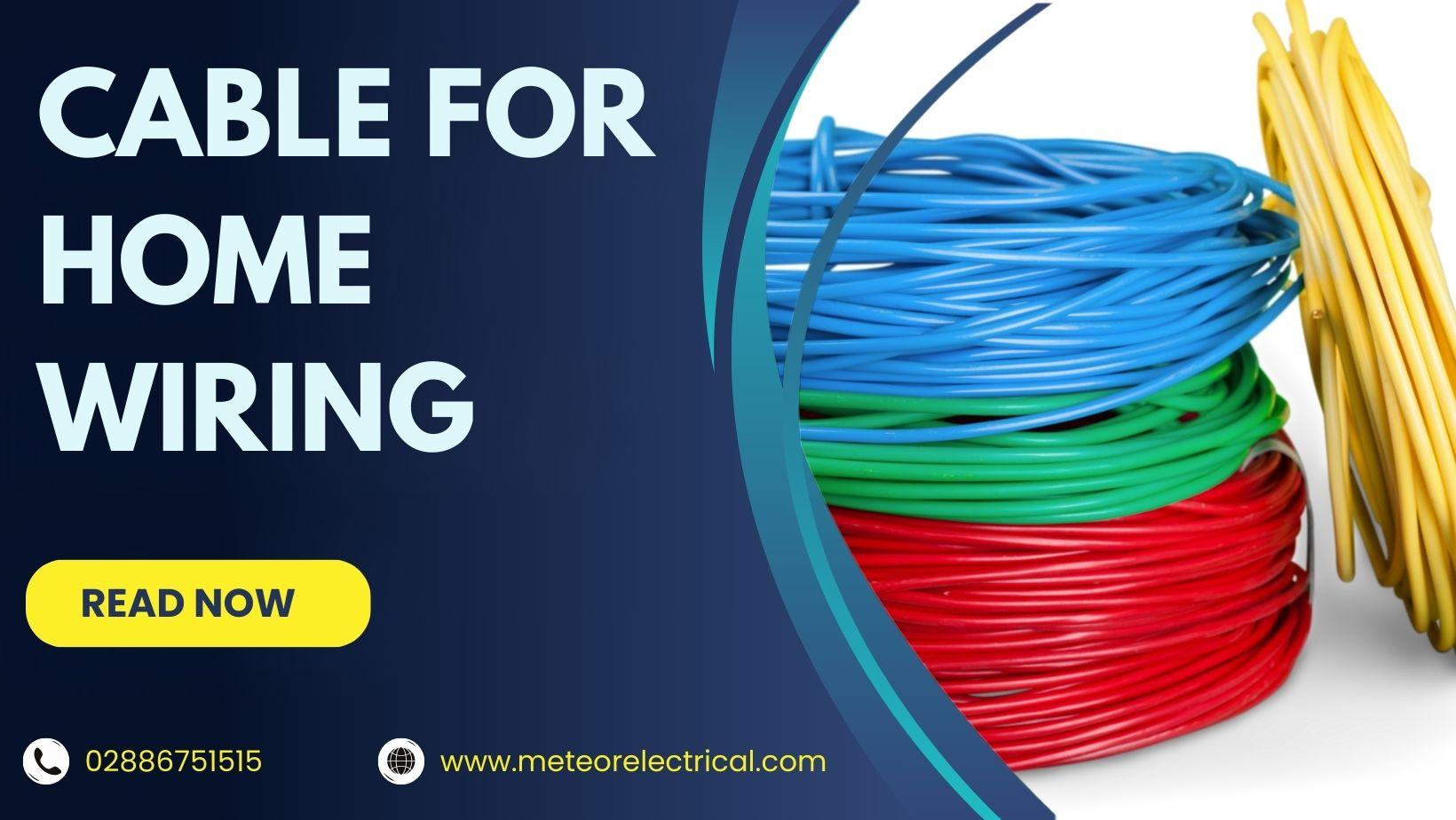Best Electrical Cable for Home Wiring: What Every UK Homeowner Should Know
Best Electrical Cable for Home Wiring: What Every UK Homeowner Should Know
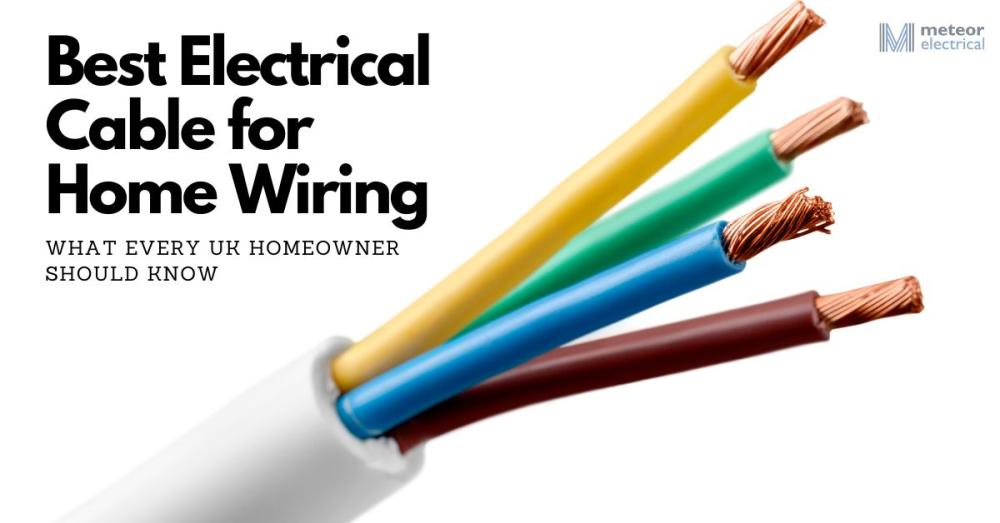
According to a report from Electrical Safety First, all accidental domestic fires in the UK are caused by electrical hazards each year, with faulty or outdated wiring frequently to blame. These incidents underline just how crucial it is to install only the best electrical cable for home wiring and nothing less. Beyond safety, selecting the right electrical cables can significantly impact the efficiency and longevity of your home’s electrical system.
This blog will discuss everything you need to know about finding the right electrical cable system, including regulations, cable types, and practical considerations. You will be equipped to make confident decisions about your home wiring so you can minimize hazards, enhance functionality and secure peace of mind.
Understanding Home Wiring Basics
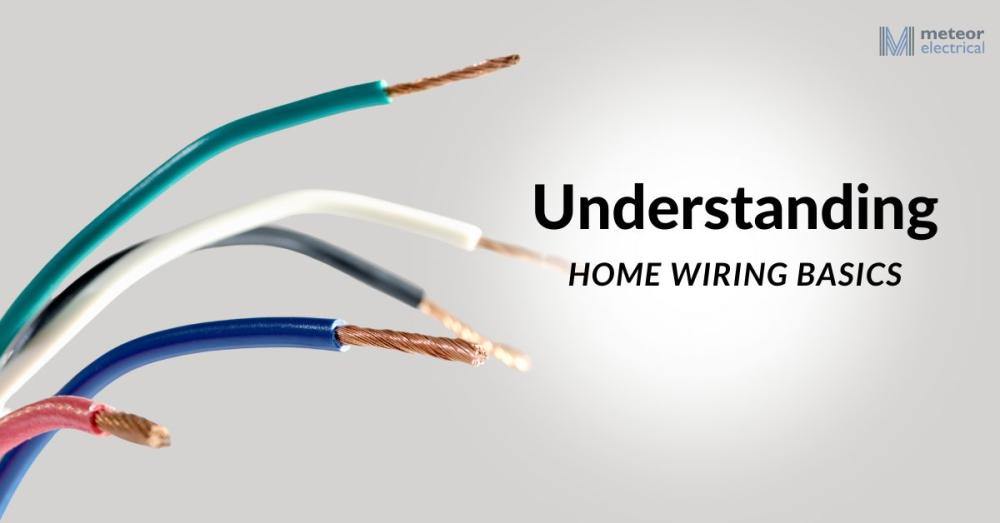
What Is Home Wiring?
Home wiring is the network that delivers electrical power throughout your home. It involves electrical cable systems, circuit breakers, sockets, and switches. Hidden behind walls or tucked in conduits, cables and their components work tirelessly to power your lights, appliances, and devices.
- Lighting: Overhead fixtures and wall lights use circuits sized for specific voltages and currents.
- Appliances: From vacuum cleaners to washing machines, these daily essentials rely on stable, safe wiring.
- Safety Mechanisms: Devices like RCDs (Residual Current Devices) and circuit breakers cut power in overload or short-circuit scenarios, reducing the risk of damage and fires.
Electrical Load and Its Impact on Cable Choice
Each appliance, device, or fixture draws a certain amount of electricity, known as its load. When deciding on the best electrical cable for home wiring, consider the total load on each circuit. An overloaded cable can overheat, degrade and potentially cause electrical fires.
Credit: How2D2
Types of Electrical Cables Suitable for Home Wiring in the UK
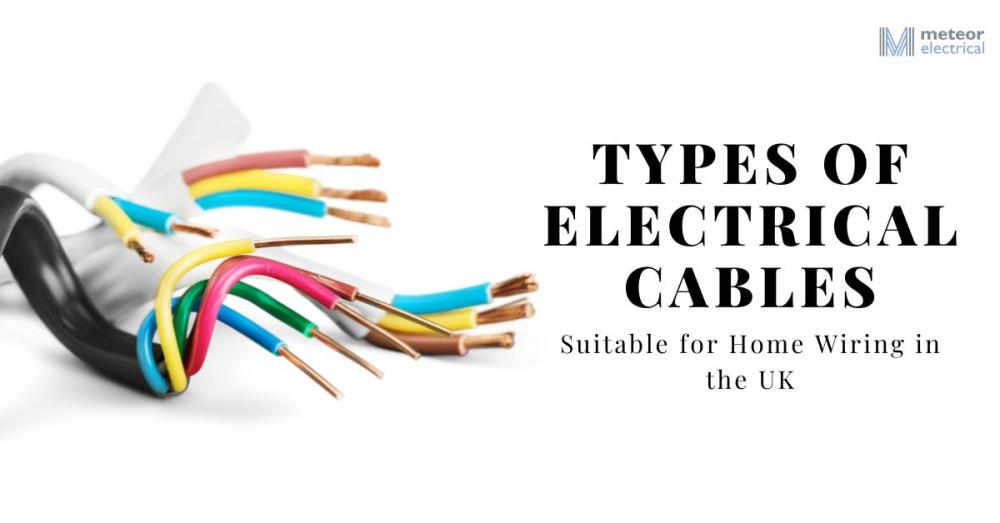
Selecting the right type of electrical cable isn’t a one-size-fits-all affair. Each variety has unique attributes tailored to specific tasks and environments.
1. Twin and Earth (T&E) Cables
Perhaps the most commonly used in UK homes, Twin and Earth cables include two insulated conductors (live and neutral) plus a bare earth conductor. They’re a go-to choice for general-purpose circuits like lighting and power sockets.
2. 3 Core and Earth Cable Explained
What Is a 3 Core Cable?
A 3 core cable incorporates three insulated conductors. Typically, these are live (brown), neutral (blue), and an additional core (black or grey) used for switching or interconnecting circuits.
What Is 3 Core and Earth Cable Used For?
This cable adds a protective earth conductor alongside the three cores. You’ll often see it in two-way or intermediate lighting circuits, as well as certain alarm setups where an extra core is needed.
3 Core Cable Colours UK
Standard practice in the UK assigns brown as live, blue as neutral, and grey or black as the extra conductor—often repurposed as a switched live. Always verify the conductor’s function with appropriate sleeving or markings. Regarding 3 core earth cable colours, the conductor is typically bare and must be sleeved green/yellow. This dedicated earth path is critical for safety in case of a fault.
3. Armoured Cables
For external or heavier-duty scenarios like garden sheds, garages, or outbuildings, armoured cables (e.g., SWA: Steel Wire Armoured) provide robust mechanical protection against accidental damage.
4. Flexible Cables
Used where mobility matters—think vacuum cleaners, washing machines, or power tools. Their flexibility helps reduce wear when cables are frequently moved or bent.
5. Fire-Resistant Cables
In areas like kitchens or fire alarm circuits, fire-resistant cables maintain their function under extreme heat, offering precious time during an emergency.
6. Specialty Cables
Solar panel wiring, data cables, and other niche products are designed for unique voltage, temperature, or environmental conditions. Using a specialized electrical cable ensures your system performs optimally and safely.
Understanding UK Electrical Standards and Regulations
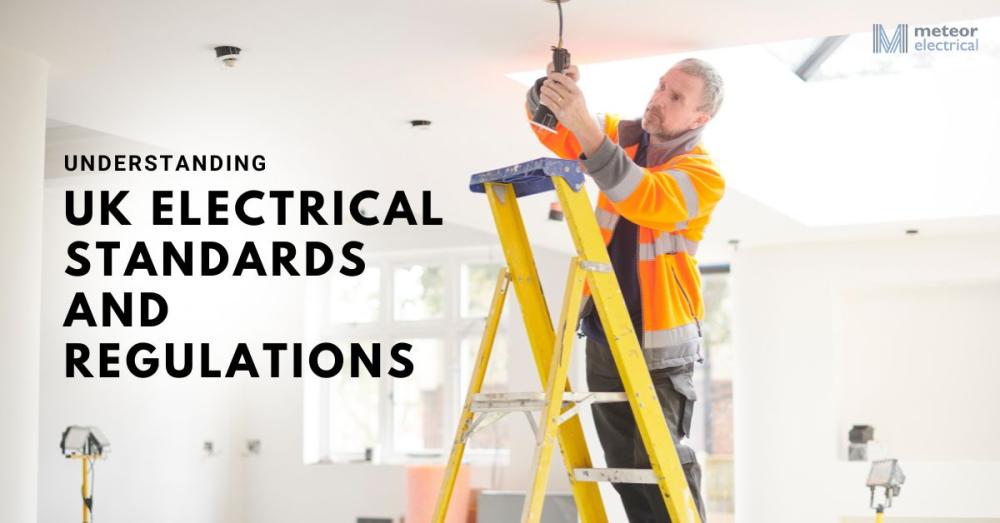
1. BS 7671: IET Wiring Regulations
This is the primary reference for electrical installations in the UK. It covers design, installation, inspection, and testing, ensuring safe and compliant wiring practices.
2. Building Regulations Compliance
Adding or modifying circuits may require notifying local building control. Always confirm what approvals or certifications are needed, especially for major electrical work.
3. Safety Certifications to Look For
When purchasing an electrical cable, look for recognized approvals such as the British Standards Kitemark or the CE mark, signifying adherence to strict safety criteria.
Credit: eFIXX
Factors to Consider When Choosing Electrical Cables
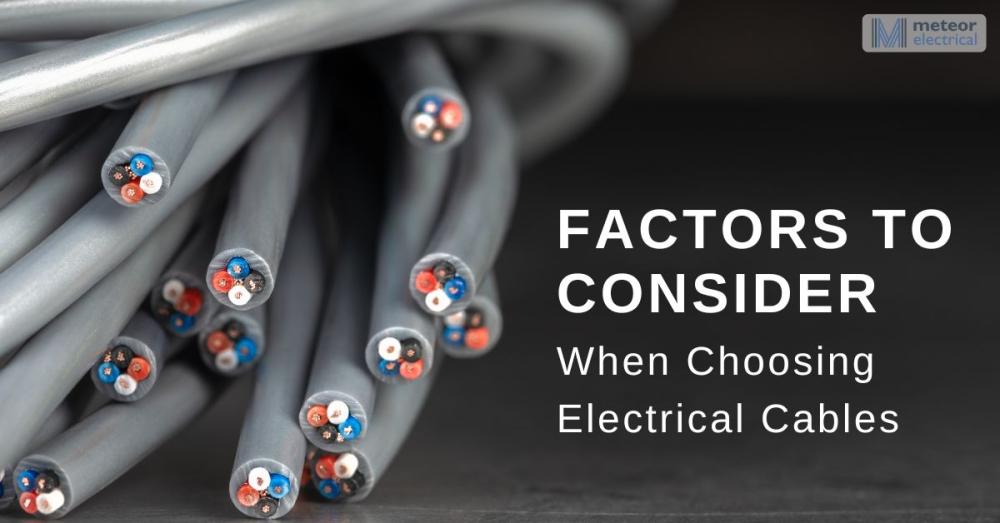
Choosing the best electrical cable for home wiring involves more than just picking a recognizable brand. Here’s what to keep in mind:
1. Current Rating and Load Requirements
- A cable must handle your appliances’ maximum current draw without overheating.
- The total load per circuit should align with the chosen cable rating.
2. Cable Size (Cross-Sectional Area)
- Undersized cables can overheat and fail prematurely.
- Oversized cables add unnecessary expense. Matching size to load optimizes cost and safety.
3. Insulation Type and Material
- PVC is standard for many household applications.
- LSZH (Low Smoke Zero Halogen) emits fewer toxic fumes in a fire, making it ideal for enclosed spaces.
4. Electric Wire Colours
- Verify the colour codes (brown/live, blue/neutral, green-yellow/earth) to avoid confusion.
- In older installations, you might encounter outdated colour schemes.
5. Installation Environment
- Cables in lofts, basements, or outdoors can face temperature swings, moisture, or mechanical stress.
- Tailor your cable choice to these specific conditions.
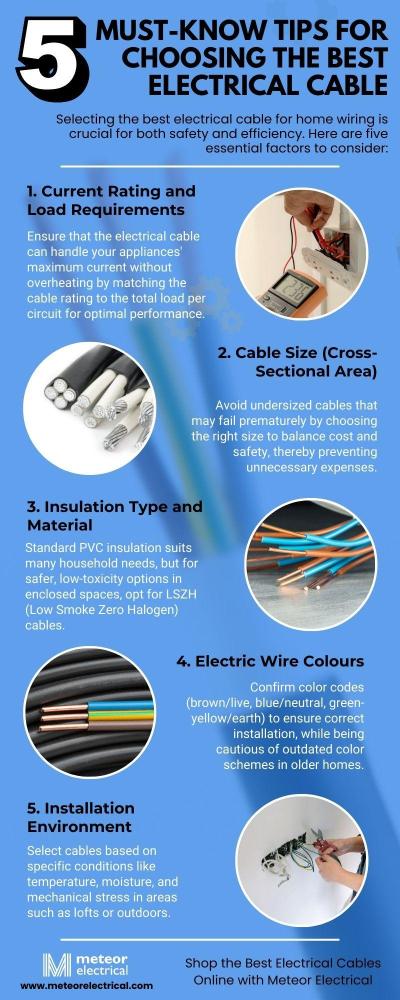
Supercharge Your Wiring Projects with Meteor Electrical
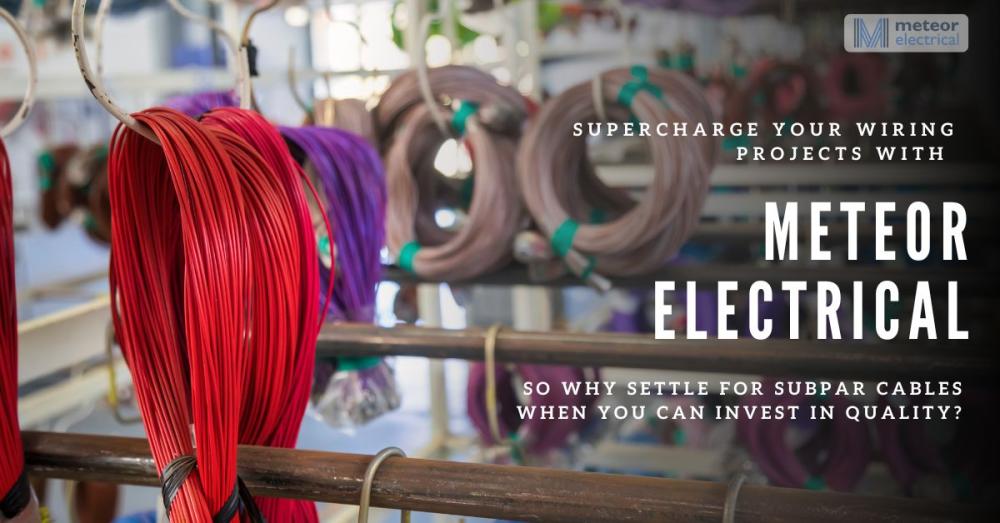
If you’re searching for the best electrical cable for home wiring in the UK, look no further than Meteor Electrical. We’ve got an extensive selection of high-quality products, perfect if you want to electrical cable buy online without the hassle of visiting multiple stores.
- Huge Variety: Browse everything from Twin and Earth to speciality fire-resistant cables.
- Trusted Brands: Stock from PX CABLES.
- Zahler, and many more—all at competitive prices.
- Convenient Delivery: Enjoy next-day delivery in Ireland and 2-day delivery service to the rest of the UK so your wiring project stays on track. ss
Whether you’re a DIY enthusiast revamping your kitchen electrics or a professional electrician tackling large-scale jobs, Meteor Electrical simplifies the process so you can purchase electrical cables with confidence.
Browse and shop our extensive collection of top brands on our online store today!
Conclusion
Selecting the best electrical cable for home wiring demands the right understanding of cable types, UK regulations, and accounting for load requirements. With this knowledge, you will be well-prepared to tackle any wiring challenge. With electrical cable buy online available at Meteor Electrical, you can ensure you get the right products delivered straight to your door. It’s a winning formula for safety, performance, and peace of mind.
FAQs
1. What size cable should I use for my kitchen appliances?
This depends on the power rating of each appliance. Typically, 2.5mm² Twin and Earth is standard for many kitchen circuits, but always consult a qualified electrician to confirm.
2. Can I install 3 core and earth cable for all my indoor lighting?
You can, but it’s usually employed for multi-way lighting circuits. Twin and Earth often suffice for basic single-way lighting unless an additional conductor is required.
3. Do I need fire-resistant cables in every room?
Not necessarily. Fire-resistant cables are generally required in specific areas like fire alarm circuits or escape routes. Check BS 7671 or consult a certified professional to ensure compliance.

